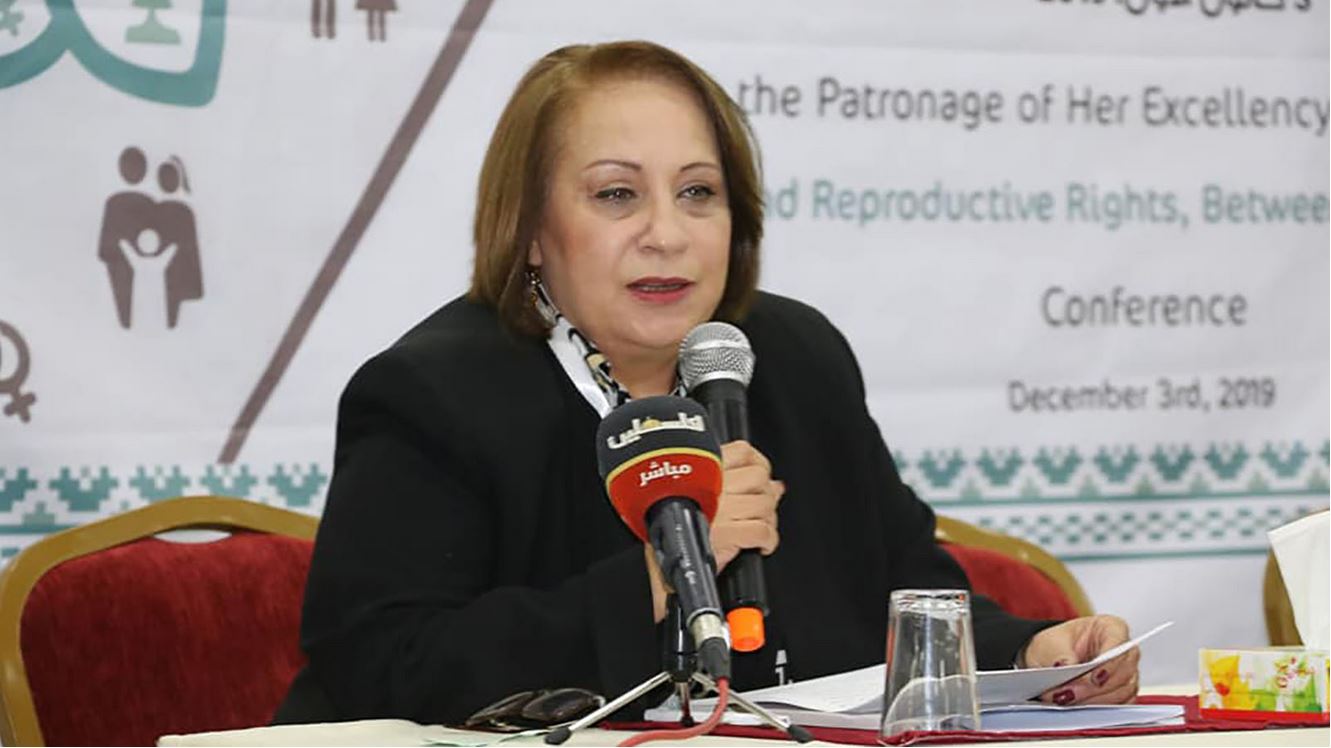Israeli authorities must end Shatha Odeh’s arbitrary detention, immediately release her, and provide compensation for her unjust detention, the International Commission of Jurists (ICJ) said today.
Ms Odeh’s arbitrary arrest and detention are part of a continued crackdown on Palestinian civil society organizations that oppose Israel’s prolonged occupation and denounce Israel’s systematic human rights violations in the Occupied Palestinian Territory (OPT).
“Ms Odeh is yet another victim of Israel’s oppressive and arbitrary military regime in the OPT”, said Said Benarbia, the ICJ’s MENA Programme Director.
“Israel should protect, not persecute Palestinian human rights defenders. This is an unlawful assault on human rights work in the OPT”, Benarbia added.
In the early hours of 7 July 2021, Israeli military forces arrested Ms Odeh, a 60-year-old nurse and the Director of the Palestinian NGO Health Work Committees, at her house in Ramallah, with no arrest warrant and without informing her of the reasons for her arrest, in violation of article 9 of the International Covenant on Civil and Political Rights (ICCPR).
On the same day, she was brought to the Ofer Military Camp, outside Ramallah, and interrogated for nine hours in the absence of a lawyer. Ms Odeh was later transferred to Hasharon Prison, where she was held until July 26; since 27 July, she has been detained at Damoun Prison. Both facilities are located in Israel, where family members cannot visit her due to the arbitrary denial of the security permits necessary for West Bank Palestinian residents to enter Israel.
On 26 July 2021, the military prosecution charged her with a number of “offences” connected to her human rights work with the Health Work Committees, including: holding “a position in an unlawful association” (a January 2020 military order, which was not notified to the Health Work Committees upon issuance, declared them an “unlawful and illegitimate organization”); participating in events connected to such organization; and “illegally” receiving funds in support of an “unlawful association.”
“By targeting Ms Odeh, and by effectively criminalizing independent civil society action, the Israeli authorities are aiming at silencing the very voices that document, report on and challenge 54 years of military occupation”, Benarbia said.
Ms Odeh’s detention has been extended during hearings before a military tribunal on 8, 14 and 19 July. During a hearing on 26 July, she was charged with the above “offences”, and remanded in custody; her detention was last renewed on 17 August. Her next court appearance is scheduled on 4 October.
Since her arrest, Ms Odeh has suffered several violations of her right to liberty and of her right to a fair trial, in breach of articles 9 and 14 of the ICCPR, respectively. Her detention has been reviewed and extended by a tribunal composed of three military judges, despite her status as a civilian.
The first four court hearings, held on 8, 14, 19 and 26 July, lasted a mere 15 minutes each, were conducted in Hebrew – a language Ms Odeh does not understand – without adequate interpretation, and each time she was only permitted to consult with her lawyer for 10 minutes before the hearing. At her last court appearance, on 17 August, which was also conducted in Hebrew with no Arabic interpretation, she pleaded not guilty to the charges brought against her.
She was provided with a poor quality Arabic translation of the original 12-page charge sheet in Hebrew, which, in turn, undermines Ms Odeh’s and her lawyer’s ability to prepare an adequate defence in view of the 4 October hearing. Due to COVID-19 restrictions, Ms Odeh attended the hearing remotely via a screen from Damoun prison.
Always due to such restrictions, only one family member was allowed to attend the hearing in person at the Ofer Military Camp, despite there being space in the courtroom to accommodate other family members and supporters.
Ms Odeh’s right to health has also been violated. She suffers from a number of chronic conditions requiring her to take specific medications regularly. The Israeli Prison Service has repeatedly neglected her medical needs; until 15 July, it denied Ms Odeh access to one of her essential medications. As her arbitrary detention continues, her health keeps deteriorating.
Moreover, Ms Odeh was detained in inhuman and degrading conditions at Hasharon Prison. Up to the 26 July hearing, she was not provided with underclothing or new clothes to replace the ones she had been wearing since her arrest, despite the fact that her lawyer had delivered clean clothes to the prison authorities.
The cell where she was held in Hasharon Prison was equipped with only two metal beds, plastic mattresses, a thin cover and no pillows, and she was constantly monitored through a surveillance camera, denying her any privacy.
The conditions of her transfers to court from Hasharon Prison to the Ofer Military Camp, where hearings take place, were also inhuman and degrading. She was transferred to court at night, and had to wait 20 hours before and after each hearing on average.
During all this time, she was handcuffed and her ankles were shackled, and she was kept waiting in hot temperatures in rooms with metal ceilings and little fresh air.
“As long as she’s deprived of her liberty, Ms Odeh must be treated humanely and with dignity”, Benarbia said. “The Israeli authorities have the duty to investigate the ill-treatment she has suffered.”
On 11 August 2021, the UN Special Rapporteur on the situation of human rights defenders, Mary Lawlor, expressed“concern over arrests, harassment, criminalisation and threats against human rights defenders in the Occupied Palestinian Territory,” and called on Israel “to make sure all Palestinian human rights defenders are protected.” She also urged Israeli authorities to release Ms Odeh and all other Palestinian human rights defenders.
Contact
Said Benarbia, Director, ICJ Middle East and North Africa Programme, t: +41-22-979-3817; e: said.benarbia(a)icj.org
Asser Khattab, Research and Communications’ Officer, ICJ Middle East and North Africa Programme, e: asser.khattab(a)icj.org





